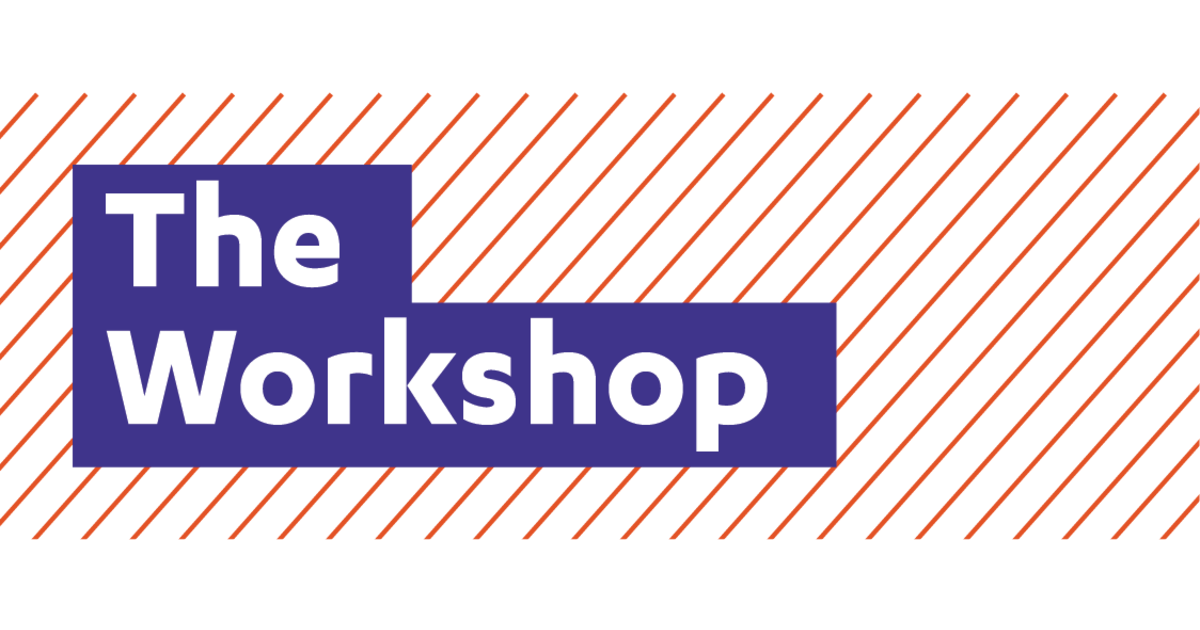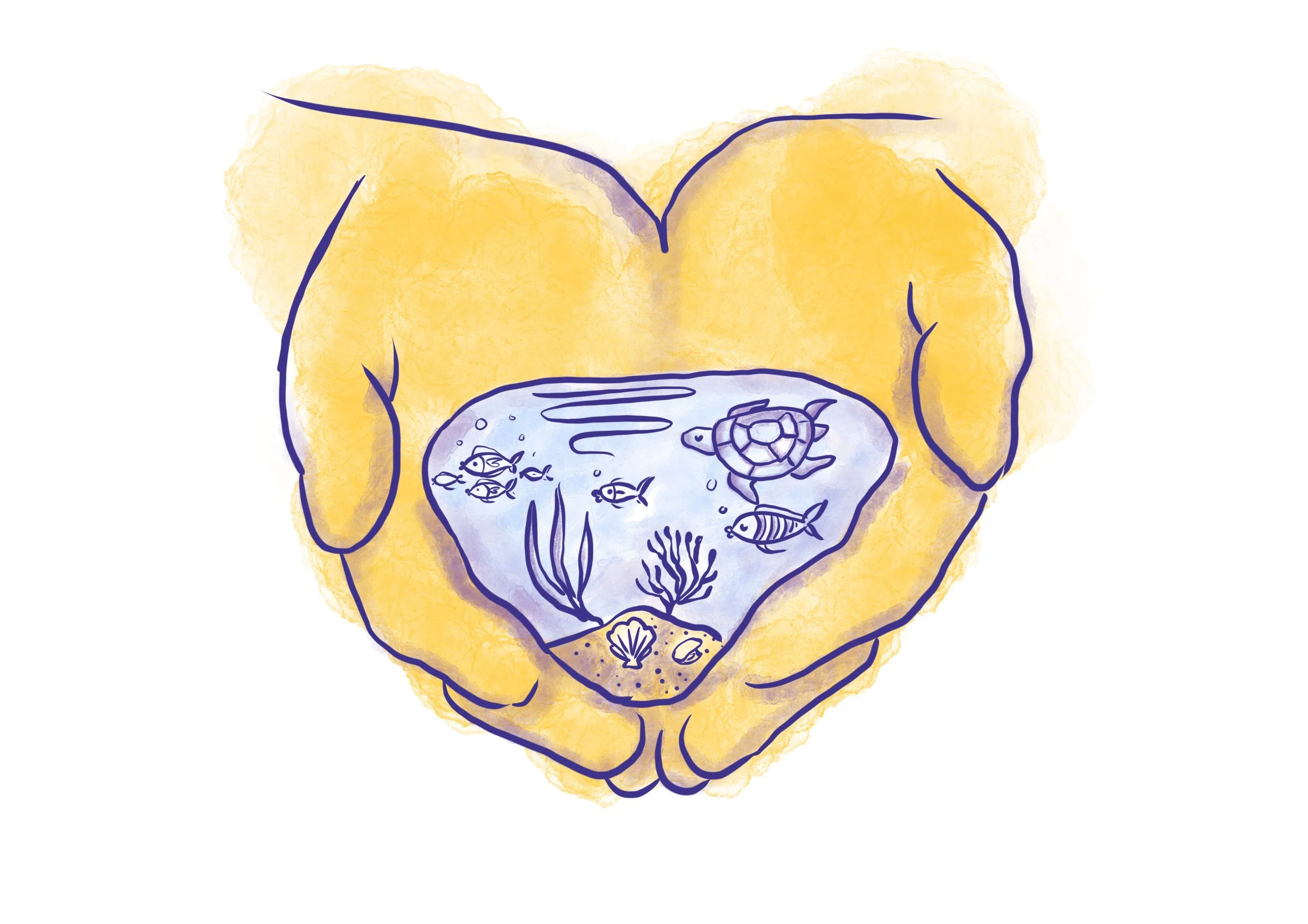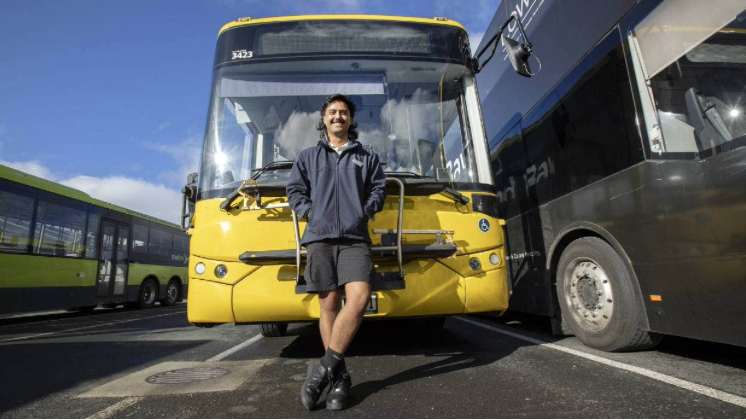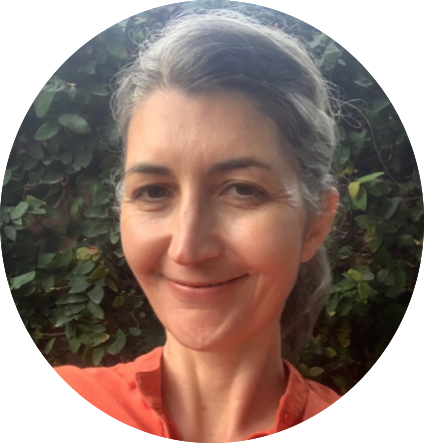We know lots of you care deeply about good information and have been struggling to find effective ways to halt the spread of false information. We’re delighted to announce new training you can join in September.
Read moreBe mad...and then get strategic
It is okay to be mad about poor policy that doesn't make the lives of many people better. Like Jess, you may need to breathe, pause, don’t type just yet. Think about what the story is YOU really want to tell. and then get strategic.
Read moreCultural mindsets and narratives eat research and facts for breakfast
Most of us care about climate change. So why don’t Kiwis understand the most impactful things they can do about climate change? Most simply it comes down to the most powerful narratives are insufficient to help people understand what to do.
Read moreScholarship applications now open for online training
Scholarship applications for our August Narratives for Change Foundations online training are now open. You can apply by filling in a simple online form.
Read moreAnnouncing Narratives for Change training scholarships
The Workshop is excited to offer scholarships for our Narratives for Change Foundations in-person and online training! Scholarships are intended to support people working on systems change who face financial barriers to attending.
Read moreUnlocking the power of shared anti-poverty narratives
Thanks to the Child Poverty Action Group (CPAG) we have a new briefing paper on how to talk about preventing poverty in Aotearoa.
Read moreNarratives for Change - new training dates announced
We’re happy to share the next round of training dates for our Narratives for Change Foundations training.
Read moreBudgets and tax - how you talk about it matters
Budget day is coming up, and to be honest I find it a bit hard - and I suspect quite a few other people do too. All the talk about money and whether it is too much or too little and who the winners and losers are. It makes me feel like we have lost sight of the reason we have budgets: to help us build the kind of communities and society that are good for all people to live in. Read Jess’s blog about How to talk about budgets and tax for public good.
Read moreValues framing and emotions: why sparking anger is ok if we end with hope
For many of us across different communities, living in a society that cares for people and the environment matters deeply. Right now, we know people are suffering, we know that we’re damaging the environment, and we know that it is so possible to fix. So why are our decision makers not taking sufficient action? It’s unjust. I feel so frustrated. Read Jess’s blog to find out more about why anger is okay and how values framing is important if we want to deepen people’s understanding about complex issues and build support for change.
Read moreHow we talk about Crime and Justice is key to creating long lasting change
Most people in Aotearoa want a future in which everyone is cared for and can live in ways that nurture our collective wellbeing. To make that future our reality, many of you are working to build a compassionate and fair criminal justice system, and to shift our shared focus and resources away from punishment toward prevention, restoration, accountability, community, whānau, wellbeing and care.
Read moreLeading decision makers to climate action - public mindset shift is a key piece of the puzzle
Many of us know that we can still prevent climate induced weather events like this - we can stop them getting worse and more frequent. We also know that we can do effective work to ensure when these events do happen we withstand them better. We see just how much sense there is in allocating more resources now, to prevent worse outcomes later, and protect the people and places we love better than we have.
Read moreWhat's your narrative strategy?
Just like in our personal lives, the beginning of a new year is a great time to get really clear on the impact we want to have in the world. What are the changes you’re working towards that will make the biggest difference to people and the planet? Once you’re clear on what changes are needed you can focus on your narrative strategy.
Read moreHow we talk about opening our streets can help create the change we all need
Changing how we talk about opening our streets for people who walk, ride bikes and take public transport can help people understand and support the changes we need to create kinder, gentler more humans ways of living and moving in our cities and towns.
Read moreSome changes at The Workshop
We’re reaching out to let you know about some significant changes we’ve made at The Workshop.
Read moreNew training opportunities
We’re excited to share with you our new training courses that we’ve been developing over the last few months. The training page has more information to help you choose which course is right for you.
Read moreSo how do we talk about the role of government?
August newsletter - With local government elections coming up, we’ve been thinking about the most helpful ways to talk about government, and its work for the long-term public good.
Read moreCutting through all the hot air — talking about air pollution and more from The Workshop
Kia ora from Jess,
This month we’ve been talking about the air we breathe and the work we can all do to build support for policies that keep our air environment healthy.
For most of us in New Zealand, having clean water, oceans and air is important — to protect and maintain our health and the health of the planet. When it comes to the air we breathe, most of us also feel it's especially important that all our children are breathing air that keeps them well.
However, a critical new study into the air we breathe in Aotearoa — The Health and Air Pollution in New Zealand (HAPINZ) study — into the impacts of air pollution on our communities shows us that is not the case in Aotearoa. Many New Zealanders, including our children, and notably children in lower income areas, breathe air in their home, on our streets, in schools, and during their travel journeys that is harming their health. And much of this harmful air is caused by air pollutants pumped out from the many cars and trucks we have come to rely on to move people and goods around.
Read about the health and air pollution study on the Ministry for the Environment website
The good news is that work is happening by people in government to open our streets to healthier forms of mobility and transport — like walking, bikes, public transport, and electric bikes, cargo bikes and cars. Transport policy changes towards building a system that reduces the need to drive cars and trucks in and between our cities will reduce air pollution. However, people in government need to speed up these changes to protect more people, more quickly, and to protect the environment.
The environmental health workers that take care of us all
The HAPINZ study was led by Dr Gerda Kuschel and a team of environmental health specialists. These experts are like an environmental ground crew in our communities — we don't often see them, but they’re working hard to monitor our air and other aspects of our physical environment to ensure we’re all taken care of as we go about our lives.
The Workshop team was asked to help this crew. Our role was to help Gerda and the team:
identify how people might think about air quality and health — their mindsets
consider how these mindsets might hinder people’s understanding and support for policies that will improve air quality
identify ways that people can talk about the issues more effectively when advocating for changes that will make the biggest difference to the health of our air and all of us who breathe it.
Crafted at The Workshop this month
Can conservative values and messengers share effective climate change messages?
A recent paper and associated videos have got people talking about what happens when we use politically conservative values to frame climate change communications. Our co-director Jess Berentson-Shaw and researcher Ellen Ozarka respond with this blog reflecting on values and climate change communications.
Read the blog - Conservative values and messengers, what's the deal in climate change communications - on our website.
Insights & Examples from the Narrative Movement
Moving Mindsets - 4 Things to Consider when Shifting Mindsets
"Mindsets can change, and with it policies and practices." - Deb Halliday.
If we want to make the changes that will make the biggest difference, we need to build public understanding and support. This means shifting the mindsets of the general public — not just policymakers. This article by Deb Halliday for Collective Impact Forum highlights four helpful things to consider when you’re working to shift mindsets.
Know WHOSE mindsets you need to change
Know IF the mindsets CAN be moved
Know IF your issue calls for moving mindsets
Mindsets are NOT just attitudes, conclusions, social norms and worldviews.
Read the full article - Moving Mindsets - on Collective Impact Forum's website.
A Great Mode Shift Messenger
We love this article on mode shift from Stuff last week, interviewing bus driver and university student, Ethan Hakopa. Ethan shows us the power of a cool messenger with a great message sharing the benefits of taking the bus – “For me, it’s just fun. You meet your neighbours. You see your friends. It builds a little community around the bus.”
Great messengers are those who are trusted by their communities, and who share the same values as the people you are trying to speak to.
Read the full article - Meet one of Wellington's coolest bus drivers - on Stuff's website.
Welcome Minette!
We are delighted to welcome Dr Minette Hillyer to our team as the Senior Narrative Advisor - Insights. Minette steps into this role with over 20 years of experience as a researcher, analyst, writer and teacher specialising in discourse and ways of making meaning. We’ve asked Minette some questions to get to know her more.
What were you up to before The Workshop?
Before joining The Workshop, I worked at Te Herenga Waka Victoria University of Wellington in the Media Studies programme. I taught and supervised in the area of popular culture (particularly visual culture), media history and critical theory. My research focused on cultural encounters via media, and the ways in which social scientists and other experts historically used media to try to interact with and influence popular culture. I have a particular love for silent cinema. Before that, I was in Auckland for a time, where I grew up, and before that I lived in San Francisco where I was working towards my degree in rhetoric.
What does your ideal Saturday look like?
An ideal Saturday for me would involve sleeping in, followed by a cup of tea and making some bread. I would like to be tramping, or if not tramping, going for a long walk, doing some yoga, spending happy time with my kids and partner and dog, talking with my siblings, seeing a movie, reading a book, and cooking and eating, with no cleaning or shopping involved. I might need Sunday as well, for all that!
What drew you to The Workshop?
I was drawn to The Workshop because I wanted to work in a supportive, collaborative environment which actively worked toward social and environmental justice. I also felt like I really recognised the basis of the narrative work being done at The Workshop, and that my skills and experience could be of use here.
Get in touch with operations@theworkshop.org.nz if you would like to talk to us about how we can help you with specific advice or do training for your team.
The Workshop Team - Marianne, Jess, Carolyn, Jordan, Gidion, Ellen, Nicky, Jayne, Tom, Julie, Hannah, Minette, and Nick.
PS: If this email was forwarded to you, you can get future emails like this by signing up here.
Talking about the air we breathe: building support for policies that keep our air environment healthy
A blog by our co-director, Dr Jess Berentson-Shaw, and the launch of our new guide: How to Talk about Air Quality and Environmental Health.
Read moreConservative values and messengers — what’s the deal in climate change communications?
A recent paper and associated videos have gotten people talking about what happens when we use politically conservative values to frame climate change communications. Our co-director Dr Jess Berentson-Shaw, and researcher Ellen Ozarka respond with this blog reflecting on values and climate change communications.
Read moreStart with hope — narrative strategies for climate change narrative
Kia ora from Hannah and Julie,
Here at The Workshop, we have been reflecting on Jess’s latest blog post and thinking about the big changes that are needed to address climate change.
Last month the government released the first Emissions Reduction Plan. It was awesome to see a commitment and resources dedicated to ensuring our children inherit a survivable planet. It is a good step towards a thriving and healthy environment, but there is still much more work to be done. Crucially, this work requires public support and understanding. How do we build this support and understanding? One way is by shifting the unhelpful mindsets that get in the way of effective action. This involves using narratives to build better public understanding of the problems and solutions.
Currently, there are outdated but habitual ways of thinking that hold us back from the changes that will make the biggest difference. These unhelpful climate change mindsets and the narratives that reflect them are the ones that leave us feeling hopeless. For example, a focus on individual behaviour change can crowd out people’s thinking, making it harder to think about the collaborative action that focuses on their role as citizens. We need to put forward new narratives that deepen people’s understanding of climate change and inspire people to act together to make changes that make the biggest difference.
This is where mindset and narrative work comes in. As Jess writes in her blog post, “Effective policies are nothing without the public's ongoing belief in them as important, effective and helpful to the problem, as they have been led to understand it.” People will be drawn to solutions that match the description of the problem. If we want big changes, we need to work on building public support and understanding for them.
Climate Change Q + A with Jess
We've been watching and listening to the public response to the launch of the Emissions Reduction Plan, which sparked more questions and conversations about how narratives can contribute to the changes we need in the climate space. We asked Jess to share her responses to these common questions.
What is your vision for climate change communication?
Oh, that is interesting! For me it is communication that is a plethora of hope filled stories from across many of our different communities. And, in those stories, in which people talk about what matters to them and why from their own unique experiences, there are golden threads (narratives) that people can find that say similar things about how climate change happened and what we can do about it. These golden threads help people grasp the deeper and more complex understanding we have about climate change, the environment and our interconnected systems that all of us are embedded within and reliant upon.
You’ve said we need to talk about people as citizens rather than consumers. What are other shifts we should make when talking about climate change?
People have to be able to feel like we can solve this problem, not perfectly - perfect solutions are not what people do - but in a collaborative, creative and iterative way that puts the things most of us deeply care about at the centre.
It is also vital that we find ways to communicate about the solidarity we need to solve these problems. That it is working together, and recognising all our unique strengths to their utmost. I think that is why in Aotearoa there's so much power in Te Tiriti led solutions, because at the heart of Te Tiriti is a story of solidarity - it’s about collaboration between different people to value and recognise the different strengths of each other’s ways and take best care of each other. If we can find ways to talk about and help people understand the potential for all people to thrive through Te Tiriti led solutions to climate change, and notably to properly recognise the leadership of mana whenua in this space (because we have no problem talking about the leadership of Tangata Tiriti), that would be very powerful too.
What’s the one thing you recommend people who are communicating about climate change start doing now?
Start with hope and our ability to collaborate across communities at scale, it will automatically redirect your own narratives and people's thinking from individualism.
The Workshop in the Media
5 Resources for Talking about Systems Change
In this blog post, Sam Rye recommends five of the best resources, reports and articles on communicating about systems change. The list provides a great starting point for those who are working on the changes that will make the biggest difference and want to deepen people’s understanding on these issues.
We feel delighted to see our guide - Mapping the Landscape, How to Talk About Systems Change in Aotearoa - included in this list, alongside great work from our friends across the globe: Narrative Initiative, ORS Impact, Ella Saltmarshe, the Centre for Public Impact, Dusseldorp Forum and Hands Up Mallee.
Read the full blogpost here: https://www.samrye.xyz/communicating-systems-change-5-best-resources-reports-articles/
How to Talk about Systems Change - an Interview with Jordan and Jess
“[Systems thinking] is not new to our people. Whakapapa is one of the most complex systems. It is the very fabric of our universe. There are heaps of systems change and systems thinking capabilities in our communities and it’s about listening and learning from our leaders.” - Jordan Green
For a deeper dive on our guide, Mapping the Landscape, check out this interview with our Kairangahau Jordan Green and Co-Director Jess Berentson-Shaw by Paul McGregor from Business Lab. Drawing on their work, Jordan and Jess talked about systems change in Aotearoa and the importance of listening and learning from Māori leaders and te ao Māori.
Check out the interview: https://www.businesslab.co.nz/beyond-consultation-podcast/45
Examples from the Narrative Movement
Unlocking People from Poverty - Dr Innes Asher
“Most parents have a vision that their children can thrive and have opportunities. Most parents want that. Unfortunately, the system has locked a lot of families in so their children cannot thrive and have opportunities - that is, really, called being in poverty.”
- Dr Innes Asher
In this interview on poverty in Aotearoa, New Zealand, Dr Innes Asher does several great things. She:
Leads with a vision
Explains the barriers to that vision, and names the government as an agent - someone who can make change
Points upstream, towards the systems that have locked families into poverty
Uses the ‘locked in poverty metaphor’
Outlines clear solutions.
For more in-depth recommendations on this topic, check out our guide: Talking about Poverty and Welfare Reform in Aotearoa.
Haere rā Sharon!
It was with equal parts sadness and excitement that we farewelled Sharon Bell from The Workshop this month. Sadness because Sharon has been with us from near the start of our growth into the organisation we are now. She has helped build a solid foundation for this organisation to grow further from, especially in our insights and research work.
Her work on our mode shift project in the early days is especially worth mentioning as part of our "just get stuck in" approach. She managed our projects with aplomb - Sharon has always had a steady hand on the tiller in rough weather. We are excited for Sharon because she heads off to MFAT to reacquaint herself with her real passion - aid and development work. As Sharon says, it's back to her knitting and we know she will knit something fabulous while there. Thank you, Sharon, from all of us at the Workshop. It is never goodbye, only a divergence of the path.
You can get more guidance on narratives on topics from transport, climate change and justice reform in our freely available message guides on our website.
Get in touch with operations@theworkshop.org.nz if you would like to talk to us about how we can help you with specific advice or do training for your team.
Marianne, Jess, Carolyn, Jordan, Gidion, Ellen, Nicky, Jayne, Tom, Julie, Hannah, Minette, and Nick at The Workshop
PS: If this email was forwarded to you, you can get future emails like this by signing up here.









